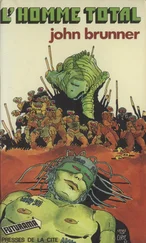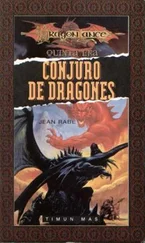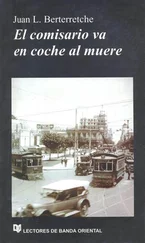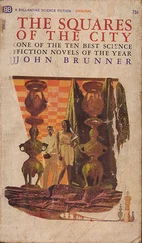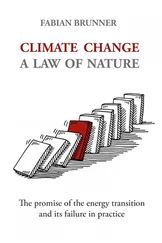John Brunner - To Conquer Chaos
Здесь есть возможность читать онлайн «John Brunner - To Conquer Chaos» весь текст электронной книги совершенно бесплатно (целиком полную версию без сокращений). В некоторых случаях можно слушать аудио, скачать через торрент в формате fb2 и присутствует краткое содержание. Год выпуска: 2011, ISBN: 2011, Издательство: E-Reads, Жанр: sf_postapocalyptic, на английском языке. Описание произведения, (предисловие) а так же отзывы посетителей доступны на портале библиотеки ЛибКат.
- Название:To Conquer Chaos
- Автор:
- Издательство:E-Reads
- Жанр:
- Год:2011
- ISBN:9780575101296
- Рейтинг книги:4 / 5. Голосов: 1
-
Избранное:Добавить в избранное
- Отзывы:
-
Ваша оценка:
- 80
- 1
- 2
- 3
- 4
- 5
To Conquer Chaos: краткое содержание, описание и аннотация
Предлагаем к чтению аннотацию, описание, краткое содержание или предисловие (зависит от того, что написал сам автор книги «To Conquer Chaos»). Если вы не нашли необходимую информацию о книге — напишите в комментариях, мы постараемся отыскать её.
To Conquer Chaos — читать онлайн бесплатно полную книгу (весь текст) целиком
Ниже представлен текст книги, разбитый по страницам. Система сохранения места последней прочитанной страницы, позволяет с удобством читать онлайн бесплатно книгу «To Conquer Chaos», без необходимости каждый раз заново искать на чём Вы остановились. Поставьте закладку, и сможете в любой момент перейти на страницу, на которой закончили чтение.
Интервал:
Закладка:
Yanderman checked himself, despite surging excitement. He put the torch back in its sconce and indicated that the servants could carry the gruesome trophy away.
The wise men spent the rest of the evening trying to convince him that it really was a devil, and he paid no attention.
Rather than have his party split up among lodgings all over the town, Yanderman had organised them under canvas in the yard of the fort. The townsfolk thought the visitors off their heads for planning to sleep on a stone pavement, and Malling had insisted that Yanderman at least have a proper bed. Yanderman wasn’t sure he was getting the best of the bargain; the “proper bed” was made of straw and stank of fleas.
Before turning in, he went out to the yard and found Augren and Stadham talking quietly by a small fire.
He joined them, asking how they fared and telling them about the bed he was being given; they chuckled together for a moment. Then he looked around to make sure none of the curious natives was in earshot, and addressed them in low tones.
“I suppose you’ve realised that if a town like this can be maintained so close to the barrenland, it can’t be so terrible as we once believed.”
Sensitive on that score after the episode of the luck-charm, Augren took it on himself to answer. “As a town-” he said, and spat into the darkness. “But the point’s good, sir.”
“Add this one to it, then, and carry both to Duke Paul first thing tomorrow. Did you see, borne across the yard to Malling’s house, a thing in the shape of a dried-up man?”
Augren looked blank, but Stadham nodded. “It went by when we were watering the horses,” he said. “Two of them caught its dusty scent and shied at it.”
“I heard the whinnying,” Augren said. “But I was elsewhere.”
“That was the body of a man who came dying of hunger and thirst out of the barrenland.”
They looked incredulous. Yanderman went over the story as he had heard it, emphasising the important fact that the man could not be from any of the local towns. He finished, “This must be taken to Duke Paul as soon as may be; if he’s not changed his plan, the army will camp once more and be here the day after tomorrow. Augren, you’ll ride with the news; Stadham, assign a man to go with him. Yourself, you’ll spend tomorrow riding about the nearer countryside to select a good camp-site. A permanent one, of course-when the army gets here the Duke will want to scout the whole perimeter of the barrenland, and that’ll take several days. If possible, choose a place with its own water-supply; we don’t want to antagonise the townsfolk by fouling theirs, and once it’s past here the stream they use is undrinkable, I imagine. Clear?”
They nodded, rose with him to salute, and sat down again as he moved away.
He had much trouble going to sleep-not from the fleas, or the prickly hardness of the mattress, but because of what he had learned. A man coming out of the barrenland!
For the first time Yanderman admitted to himself what must lie at the back of Duke Paul’s mind. Never a man to be satisfied with half-measures, the Duke. If a problem caught his attention, he would worry it till its back was broken, or at least till he knew it was insoluble with present resources.
Surely-and Yanderman felt a quiver of alarm-nothing would content him short of marching into the barrenland to see if there was anything there.
Legend said there had been, once. Legend was turning out far too accurate for comfort, too-what with confirmation of the former existence of vast cities, time-beaten but still rich with metal and glass, what with Granny Jassy’s uncanny fore-knowledge of the terrain they had traversed since leaving Esberg.
Suppose the remaining legends proved true, as well! The tale went that in the old days when man went to other worlds (but what other worlds? Where was there room for them?) they walked at last, instead of travelling in machines. And some of those “other worlds” were strange, perilous places.
He had heard descriptions from Granny Jassy, but to him the words she parroted made no more sense than they did to her. He would have left it there; Duke Paul would not.
Vaguely, however, a few consistent threads of narrative emerged. A sickness-a kind of contagious insanity. A disaster. The building of a barrier around the place from which you-walked to other worlds, too late to stop the plague from spreading. Just as Lagwich had once been merely a stone fort and no town, possibly the barrenland had been … the barrierland?
And a man had come out of it. Within living memory.
How would you move an army of two thousand men across territory without usable food or fuel, even for three or four days? How would you organise water? That was the worst problem. Water so bulky and indispensable to a marching man …
Streams, maybe. Streams in the barrenland itself. Take animals along and test the purity of the water on them. But a sickness might take days to show itself, and …
Maybe leapfrog a party across the bare ground: half the men carrying provisions, breaking off at the end of the day’s march and coming back, leaving the others to continue with the extra rations-but this would mean you’d reach your goal with a fraction of the original force to meet any challenge …
Yanderman was still wrestling with the problem when he fell asleep.
VIII
His father was still snoring on the other side of the room when Conrad woke up. One of the town’s watermen was crying in the street outside. Cautiously, wanting to try his knee before he risked hurting it again, he went down and traded half a lump of soap for a pail of fresh water. It was stupidly extravagant when he could have gone to the stream himself, as he usually did, but his leg was very painful.
Washed, he ate what was left from the night before-his father must have been too drunk to be hungry when he came in-and went with his sacks to collect the ash Idris had promised.
Her mother and brother were busy with her in the kitchen, racking the new loaves; it was not until he had filled two sacks and got dust all over himself as usual that Idris had a chance to whisper to him in a corner.
“Have you heard the news about the foreigners?”
“Who’d tell me, except you?” Conrad countered sourly.
“Why, it’s unbelievable! There’s a great army of men coming here, two thousand of them it’s said, from a city far to the south!”
“Fourteen days’ march,” Conrad muttered, thinking how close he had come to having this news direct from Yanderman. Blast Waygan!
“Idris!” A shrill interruption from her mother. “Are you talking to that no-good boy again? There’s work to do, have you forgotten?”
“Coming, mother! One more sack and that’ll be all!” Idris put her head close to Conrad’s again. “Won’t it be exciting? All the strangers from the south! They’re sure to visit the town while they’re camped here!”
“Idris!” her mother exclaimed. “Leave Idle Conrad to get on with it by himself-he’s quite capable.”
“But mother! Conrad’s hurt his knee!”
“That’s his lookout. You do as I tell you!”
“Go on,” Conrad urged her with a sigh. “This won’t take me long.” He gave her a smile and picked up the first sack; somehow, to prevent her feeling bad about it, he stopped himself from limping as he carried it to the door.
The news must have travelled with the speed of the wind, for as he trudged towards the gate of the town, his sacks of ash trailing behind him on a sledge of crossed branches, and paused at intervals to collect dollops of stale fat and grease from kitchen doors, he heard several people discussing the good effect the army’s visit would have on trade. Old Narl, the weaver, was less optimistic than most; Conrad heard him say grumpily to a friend, “I don’t like it! That many men could take all we have, not bothering to leave payment.”
Читать дальшеИнтервал:
Закладка:
Похожие книги на «To Conquer Chaos»
Представляем Вашему вниманию похожие книги на «To Conquer Chaos» списком для выбора. Мы отобрали схожую по названию и смыслу литературу в надежде предоставить читателям больше вариантов отыскать новые, интересные, ещё непрочитанные произведения.
Обсуждение, отзывы о книге «To Conquer Chaos» и просто собственные мнения читателей. Оставьте ваши комментарии, напишите, что Вы думаете о произведении, его смысле или главных героях. Укажите что конкретно понравилось, а что нет, и почему Вы так считаете.

